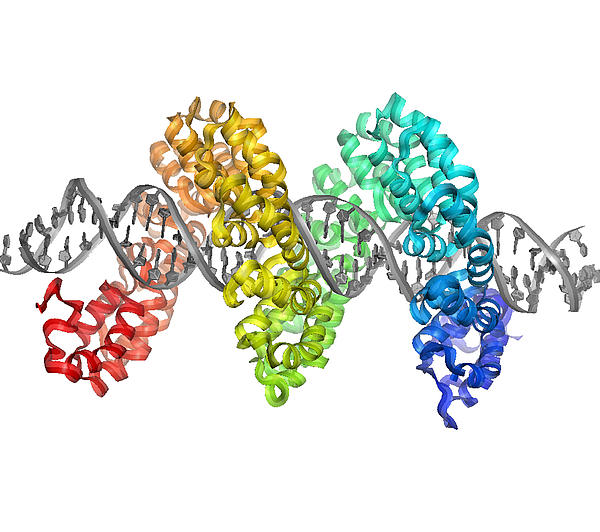Bachelor of Science (ID 88148)
- Algorithmen� und Datenstrukturen (6 CP)
- Algorithmische Bioinformatik I (9 CP)
- Algorithmische Bioinformatik II (9 CP)
- Analysis (8 CP)
- Analysis II (9 CP)
- Bachelor-Arbeit (12 CP)
- Biochemie (6 CP)
- Bioinformatische Ressourcen (5 CP)
- Biologie (6 CP)
- Chemie (6 CP)
- Diskrete Strukturen (8 CP)
- Diskrete Wahrscheinlichkeitstheorie (6 CP)
- Einführung in die Bioinformatik I (5 CP)
- Einführung in die Bioinformatik II (5 CP)
- Einführung in die Informatik I (6 CP)
- Einführung in die Programmierung (9 CP)
- Einführung in die Programmierung für Bioinformatiker (6 CP)
- Einführung in die Theoretische Informatik (8 CP)
- Formale Sprachen und Komplexität (6 CP)
- Grundlagen: Algorithmen und Datenstrukturen (6 CP)
- Hauptseminar Bioinformatik (4 CP)
- Lineare Algebra (8 CP)
- Lineare Algebra II (6 CP)
- Logik und Diskrete Strukturen (6 CP)
- Praktikum Genomorientierte Bioinformatik (12 CP)
- Praktikum Molekularbiologie und Biochemie (9 CP)
- Praktische Arbeit (6 CP)
- Programmierpraktikum Bioinformatik (9 CP)
- Proseminar Bioinformatik (4 CP)
- Stochastik und Statistik (9 CP)
- Tutorium Bioinformatik (3 CP)
- Wahlfächer (W)
- 3D Computer Vision (5 CP, W)
- Advanced Evolutionary Genomics (3 CP, W)
- Algorithmen auf Sequenzen (9 CP, W)
- Algorithmische Bioinformatik: Bäume und Graphen (9 CP, W)
- Algorithmische Bioinformatik: Systeme und Netzwerke (9 CP, W)
- Algorithmische Systembiologie (9 CP, W)
- Anfragebearbeitung und Indexstrukturen in Datenbanksystemen (6 CP, W)
- Basic Evolutionary Genomics (3 CP, W)
- Biochemie 3 - Makromoleküle (3 CP, W)
- Biochemie 4 (3 CP, W)
- Biochemie 5 - Life Cycle of Proteins (3 CP, W)
- Biochemie 6 - Model Organism (3 CP, W)
- Biochemie 7 - Flow of Genetic Information (3 CP, W)
- Biostatische Methoden (5 CP, W)
- Computational Methods in Evolutionary Biology (8 CP, W)
- Computer Grafik (6 CP, W)
- Computer-Aided� Drug and� Protein Design (6 CP, W)
- Datenbanksysteme I (6 CP, W)
- Datenbanksysteme II (6 CP, W)
- Effiziente Algorithmen und Datenstrukturen I (8 CP, W)
- Effiziente Algorithmen und Datenstrukturen II (8 CP, W)
- Einführung in die Informatik 2 (5 CP, W)
- Einführung in die Softwaretechnik (6 CP, W)
- Einsatz und Realisierung von Datenbanksystemen (6 CP, W)
- Evolutionary Genetics (6 CP, W)
- Genetics of Aging (3 CP, W)
- Grundlagen der multivariaten Verfahren (6 CP, W)
- Grundlagen der Programm- und Systementwicklung (6 CP, W)
- Grundlagen: Datenbanken (6 CP, W)
- Immunoinformatik (6 CP, W)
- Knowledge Discovery in Datenbanken I (6 CP, W)
- Knowledge Discovery in Datenbanken II (6 CP, W)
- Maschinelles Lernen und Data Mining (6 CP, W)
- Mathematische Modelle in der Biologie (9 CP, W)
- Methoden der Genomanalyse (5 CP, W)
- Methoden des Software Engineering (6 CP, W)
- Modellierung und Simulation� biologischer Makromoleküle (6 CP, W)
- Modellierung verteilter Systeme (4 CP, W)
- Molekulare Virologie I (3 CP, W)
- Multivariate Statistics in Ecology and Quantitative Genetics (5 CP, W)
- Parallel Computing: Grundlagen und Anwendungen (6 CP, W)
- Perlen der Bioinformatik: Algorithmen (9 CP, W)
- Perlen der Bioinformatik: ENCODE (9 CP, W)
- Petrinetze (3 CP, W)
- Practical Bioinformatics - The Bioinformatics Lab (8 CP, W)
- Programmierung und Modellierung (6 CP, W)
- Projektorganisation und -management in der Softwaretechnik (5 CP, W)
- Protein Prediction I bzw. Protein Prediction - Beginners (8 CP, W)
- Protein Prediction II bzw. Protein Prediction - Advanced (8 CP, W)
- Software Engineering für spezielle Anwendungsgebiete (6 CP, W)
- Software Engineering I: Softwaretechnik (6 CP, W)
- Softwaretechnik (6 CP, W)
- Spatial, Temporal and Multimedia Databases (6 CP, W)
- Statistische Methoden für Genomik und Proteomik (6 CP, W)
- Strukturbioinformatik (5 CP, W)
- Strukturbiologie (6 CP, W)
- Systems Biology of Disease and Drug Treatment (6 CP, W)
- Verteile Anwendungen (5 CP, W)
- Wissensbasierte Systeme für industrielle Anwendungen (4 CP, W)
- Wissenschaftliche Visualisierung (4 CP, W)
- Zelluläre Biochemie (6 CP, W)
- Weiterführende Bioinformatik (6 CP)







